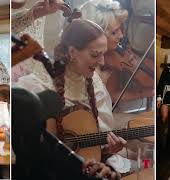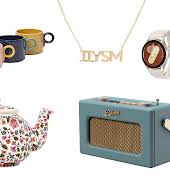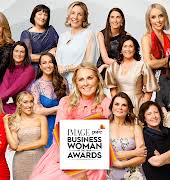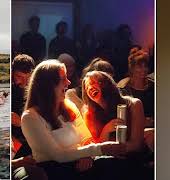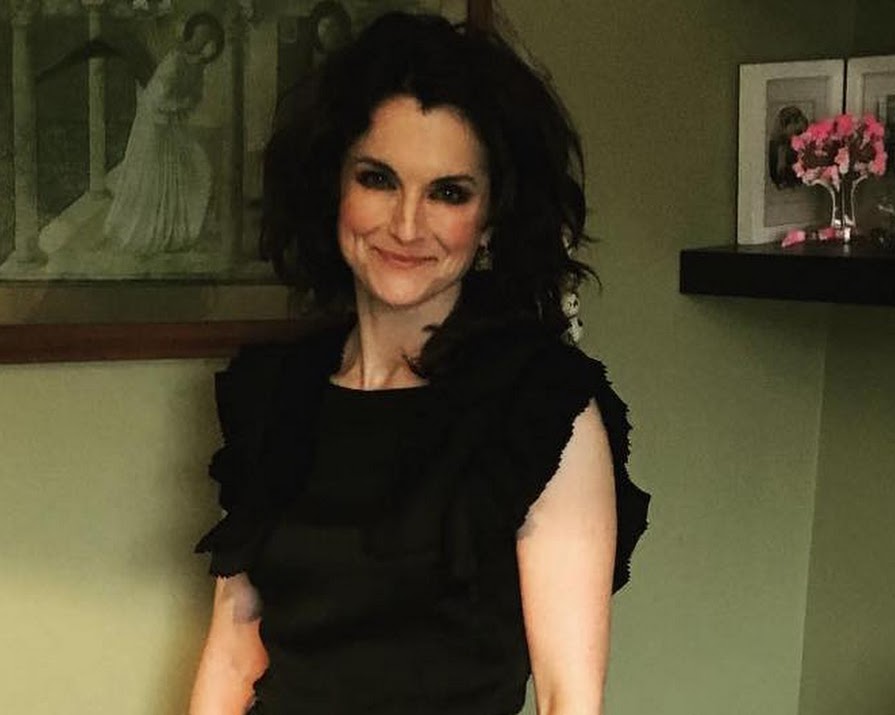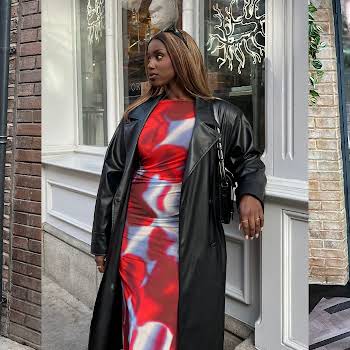By Grace McGettigan
29th Oct 2019
29th Oct 2019
In honour of World Stroke Day, we’re looking back on this inspiring story from the archives. Máirín Ní Bheacháin suffered a stroke while undergoing surgery for Moyamoya; a rare and progressive cerebrovascular disorder caused by blocked arteries in the brain. Since then, she has re-learned how to read and write and has even founded her own personal styling business, MoStyle. Here Máirín tells IMAGE.ie how it’s never too late to reinvent yourself
Máirín Ní Bheacháin wasn’t always a personal stylist. Before setting up her business MoStyle, the mother-of-two was a teacher – that is, until she became unwell. One day, while at the front of the class, the words she wanted to say wouldn’t come out.
Máirín underwent tests and was later diagnosed Moyamoya; a rare and progressive cerebrovascular disorder caused by blocked arteries in the brain. Then, while undergoing surgery to treat the condition, Máirín suffered a stroke. When she finally woke up, she had lost her abilities to read and write.
She was 40 years old.
An opportunity
While many people would find this situation frightening, Máirín was relatively okay. “I know it sounds strange,” she says, “but actually, I didn’t find it scary. I was just so happy that I was going to get to see my kids and that I was alive”. Forgetting how to read and write was the least of her worries, she says.
Related: How Jean Cronin created a vintage treasure trove loved by Ireland’s most stylish women
Instead, Máirín saw it as an opportunity to reinvent herself. “When I woke up, I knew instantly I would never go back teaching because it changed me completely. I just thought, ‘you only get one life and life is for living’. I was like, ‘right, this is a chance to do something that I really want to do’”.
With that in mind, and with the help of family and friends, Máirín re-learned to read and write before setting about launching her first fashion business.
View this post on Instagram
Reinvent yourself
“A whole part of my brain was hit with the stroke,” she says. “I have a little boy and girl, and when they came to see me in hospital, they were like, ‘Mam, what’s Moyamoya? Can you spell this?’ And I just had no concept of what they were talking about.
“People say, ‘Oh, do things come back to you?’. In my case, it didn’t come back. I just had to learn it all again. I literally started with 1, 2, 3 and A, B, C – and then took it from there. I was always, as my family would say, ‘a massive fighter’. And so, I don’t know, I just got on with it,” Máirín says.
“I did a couple of social media courses because I’m not one of the technology-blessed people. I’m one of the dinosaurs but I’m learning!”
“And then, skipping forward three years, I was kind of getting back on my feet and I wanted to be useful. I never really sit still; it’s not really my style, and so I started to think about ‘what can I do?’
“My sister helped me write a letter to Dress for Success; they’re all about helping women get back into the workforce,” Máirín explains. “I applied to them, went for an interview, and they took me on as a stylist.
View this post on Instagram
“I was styling with them for about six months,” she says, “and then I started to realise this is something that I’m loving. I was loving the people I was meeting and the confidence I was bringing to people; and I thought, you know, maybe there’s something I can do.
“I don’t think any of [those jobs] is a waste of time because, I think no matter what you’re doing, you pick up skills along the way that can be applied to so many different parts of life.”
“So just under a year ago, I started to build my MoStyle business. Little by little, I was looking for clients; using word of mouth, going to swap shop fairs, and things like that. My sister and brother helped me with the advertising and my website and flyers”. Máirín is grateful for this support system, saying it’s really important when recovering from any illness. “I guess I’m one of the lucky ones, in that way,” she says.
The budding entrepreneur also did a business development course, “and I did a couple of social media courses because I’m not one of the technology-blessed people,” laughs Máirín. “I’m one of the dinosaurs but I’m learning!”
Going the long way
“I was one of those people who never knew what I wanted to do when I grew up. And I still don’t know – I mean, now I guess I’ve found something – but much later in life. Now I see what I’m good at. But I’ve done lots of different jobs,” Máirín says.
“I used to manage a restaurant in Dublin; I moved to Montreal and was in music management over there; I came home and got involved in a marketing agency where I was a project manager… So I’ve no problem reinventing the wheel. I guess I probably took a safe option going into teaching at 25. I loved it, and it was great, but I knew it was never going to be the final step in my career,” Máirín says.
View this post on Instagram
“I don’t think any of [those jobs] is a waste of time because, I think no matter what you’re doing, you pick up skills along the way that can be applied to so many different parts of life. I’m a firm believer in that”.
At last, Máirín returned to her first love: art. “I was always really arty, but I think I wasn’t brave enough. “I’ve studied photography, print, and I’ve done so many different art courses. I love anything to do with fashion and style; anything creative I’m always really drawn to. So I guess I took the long way around.
“Now that I’m actually working in it, I’m absolutely loving it. I just found my thing, I guess.”
MoStyle
Máirín’s business, MoStyle, takes a unique approach to personal styling. “I offer a wardrobe analysis,” she says. “And I find that’s really good, because rather than just rushing out and saying ‘I need this and I need that’, people take stock of what they actually have. We look at absolutely everything they have from shoes to bags to accessories.
“The clients try on absolutely everything and I take pictures of them, just between me and them, and that kind of helps them get an idea of what looks good and what doesn’t. Easily, people can pare down what they have, and then it makes for smarter shopping in the future because you know your shape; you know the colours that suit; you know the cuts that work for you; what you do need and what you don’t need. It just kind of cuts down on frivolous shopping, you know?”
View this post on Instagram
Then we can shop in person or, knowing what they’re looking for, I can send suggestions for online shopping. Sometimes people are looking for a show-stopping outfit, which I can do research for and send to them.
“Sometimes people are looking for a wardrobe update for a new job, or maybe a relationship shift or health shift; there’s usually some reason for the phone call,” Máirín says.
“I love seeing people feeling good. And I love talking to them and helping them discover their signature style. My aim is to make getting dressed fun; to make it easy and make people feel great.”
Handling frustration
While Máirín has come a long way and while business is booming, there are still some moments of frustration.
“I studied English and French and I love, love, love to read. I really miss that, out of all things, I really miss that most. Because, you know, like I was a reader and now I can’t help my kids with their homework and things. Education was quite important to me. I feel like I’m just a little bit handicapped in that way, so that’s hard. That’s definitely hard,” she says.
“I just think it’s never too late to start something new. So don’t be afraid. It’s your life, just go for it.”
“I’m really good and really healthy, and I can read and write now; I just can’t do it quickly. So I use the technology for the blind; you know, screen readers and things like that. If I want to read an article, I’ll just put in my headphones and read my article.
“It’s kind of ironic that I was so anti-technology and now I’m so reliant on it.” Máirín laughs.
View this post on Instagram
Ask for help
It’s important to note that every stroke is different, and while Máirín doesn’t want to speak for everyone, she says it’s important to always ask for help if you need it.
“I would definitely advise people to avail of any services they can. For instance, you might not think it’s obvious, but for me, it was the National Council for the Blind Ireland (NCBI). I felt like a bit of a fraud ringing there at the start because I’m not blind, but I feel like I’m blind. They were really willing to help, so just use any service you can avail of.
Related: What to do when your career goes to plan but you’re still not happy
The mother-of-two also says to rely on family and friends when you can, and try not to fade into the background. “Put yourself out there, even if it’s hard… the more courage and strength and resilience you’ll build up”.
“I just think it’s never too late to start something new. So don’t be afraid. It’s your life, just go for it.”
View this post on Instagram
Overcoming anything
Having a stroke taught Máirín that life is short. “You know what?” she says, “People will think what they want, and if they like what I do, they’ll come back. So I guess I have a bit of a conviction; there’s merit to what I’m doing and the feedback is great.
“I don’t waste time thinking or letting things hold me back. Anytime I’ve asked for help or assistance or pitched ideas, they’ve always been well received. So I think, if you don’t ask, you don’t get.
“I would never really have thought of myself being able to do that before. But when something like that happens, it kind of makes you reevaluate; really grab life and go for it”.
To arrange a style consultation with Máirín, visit MoStyle.ie.
If you or someone you know is suffering any symptoms of a stroke (such as drooping of the face, difficulty lifting arms and keeping them there, or slurred speech), call 999 immediately. Visit hse.ie/stroke for more information.
Photos: Máirín Ní Bheacháin
This article was first published on IMAGE.ie in June 2019.
Read more: 5 Irish businesswomen weigh in on the so-called ‘work-life balance’
Read more: 8 things we should stop feeling guilty about right now
Read more: Pain, stiffness and swelling: Osteoarthritis affects women twice as much as men


